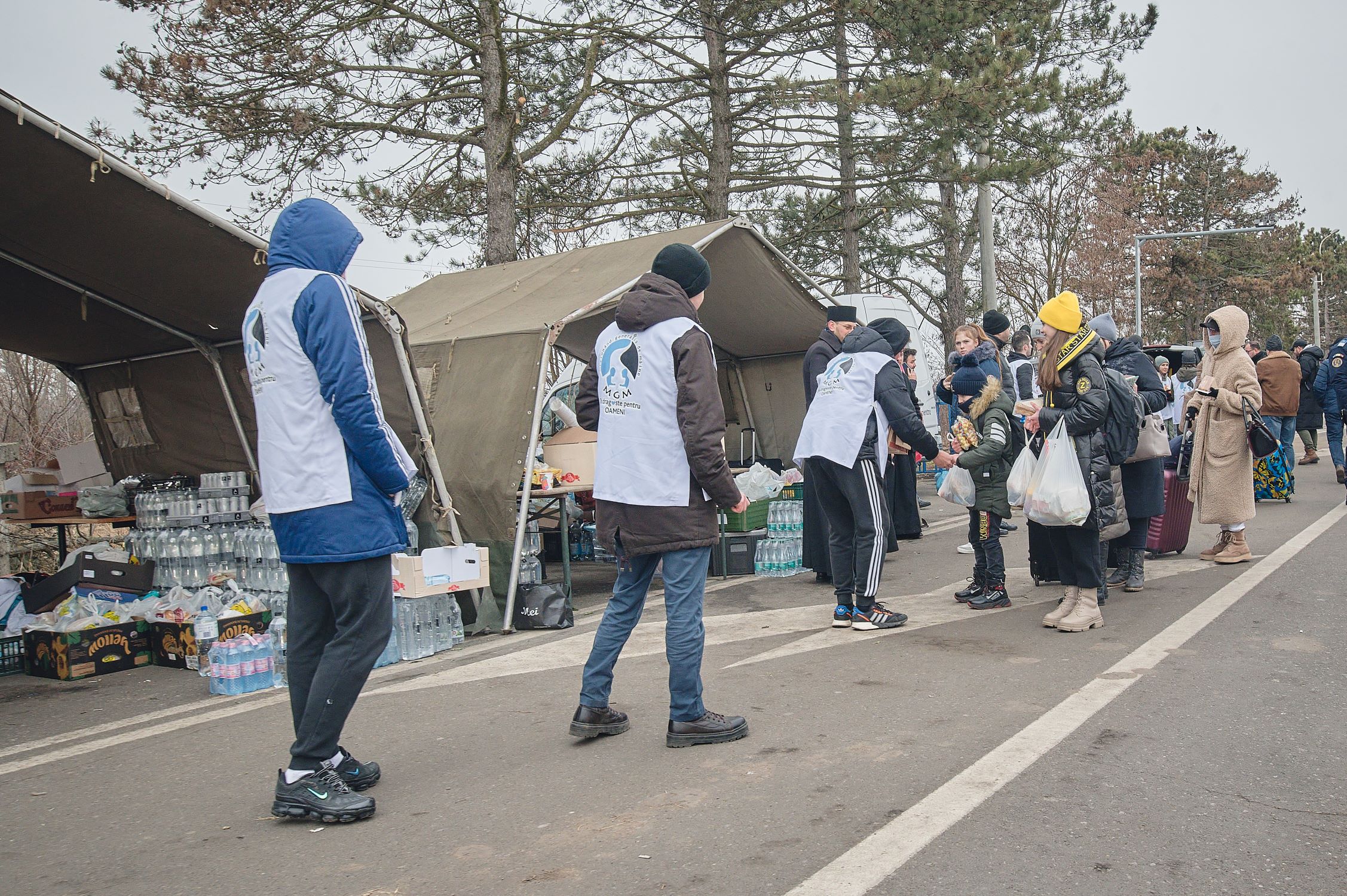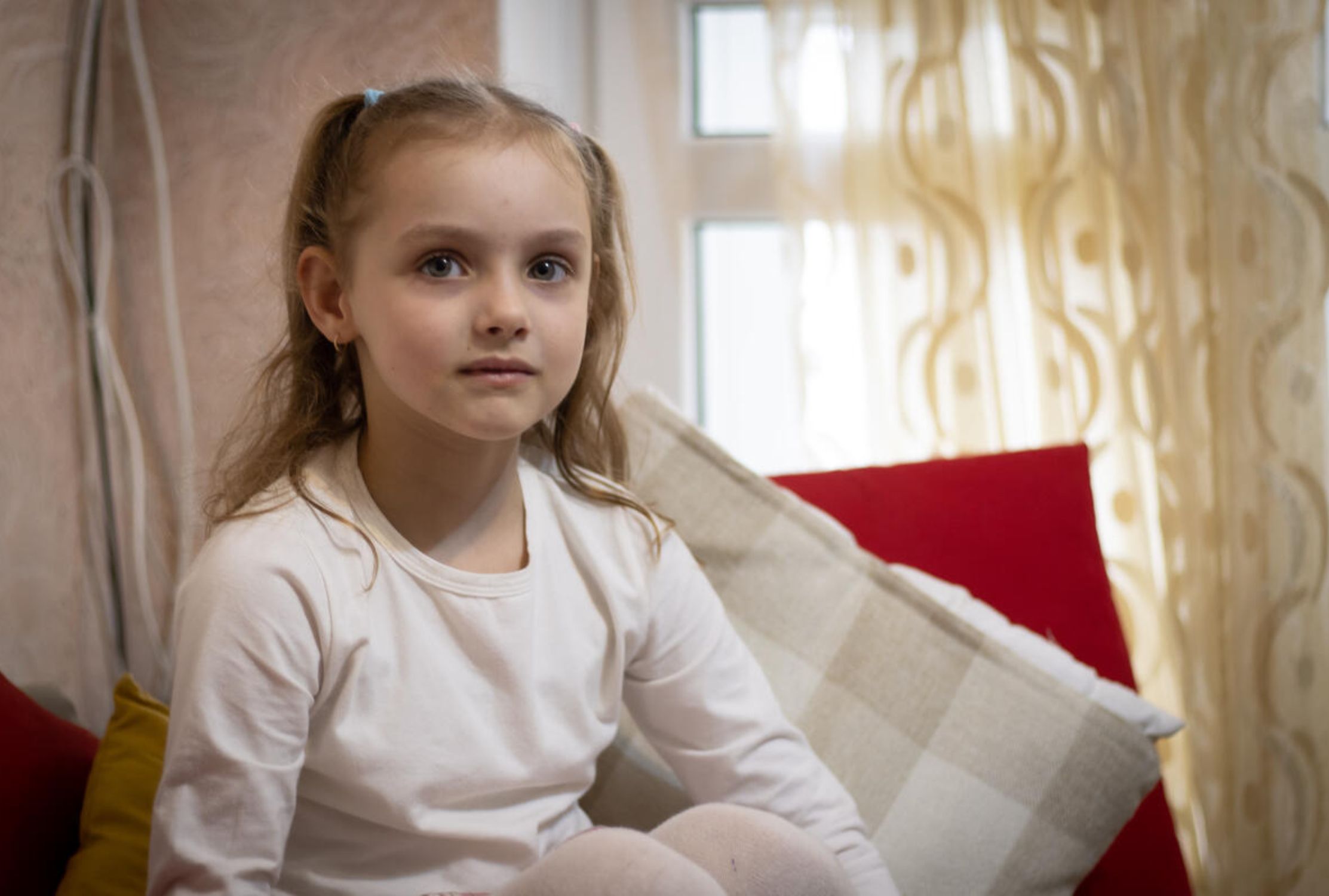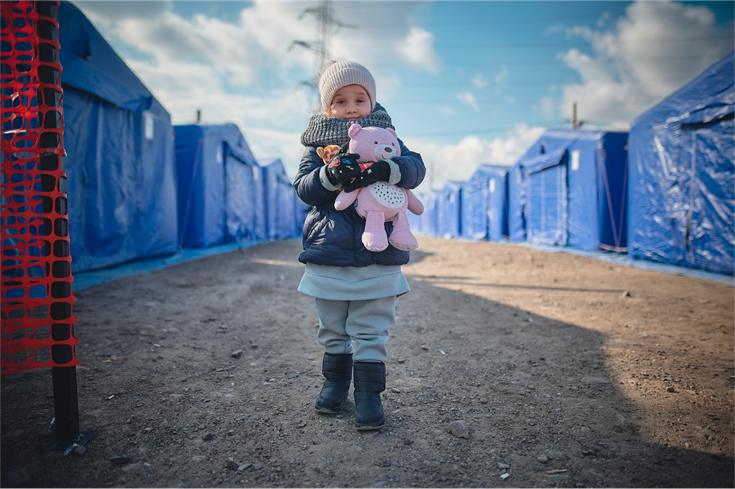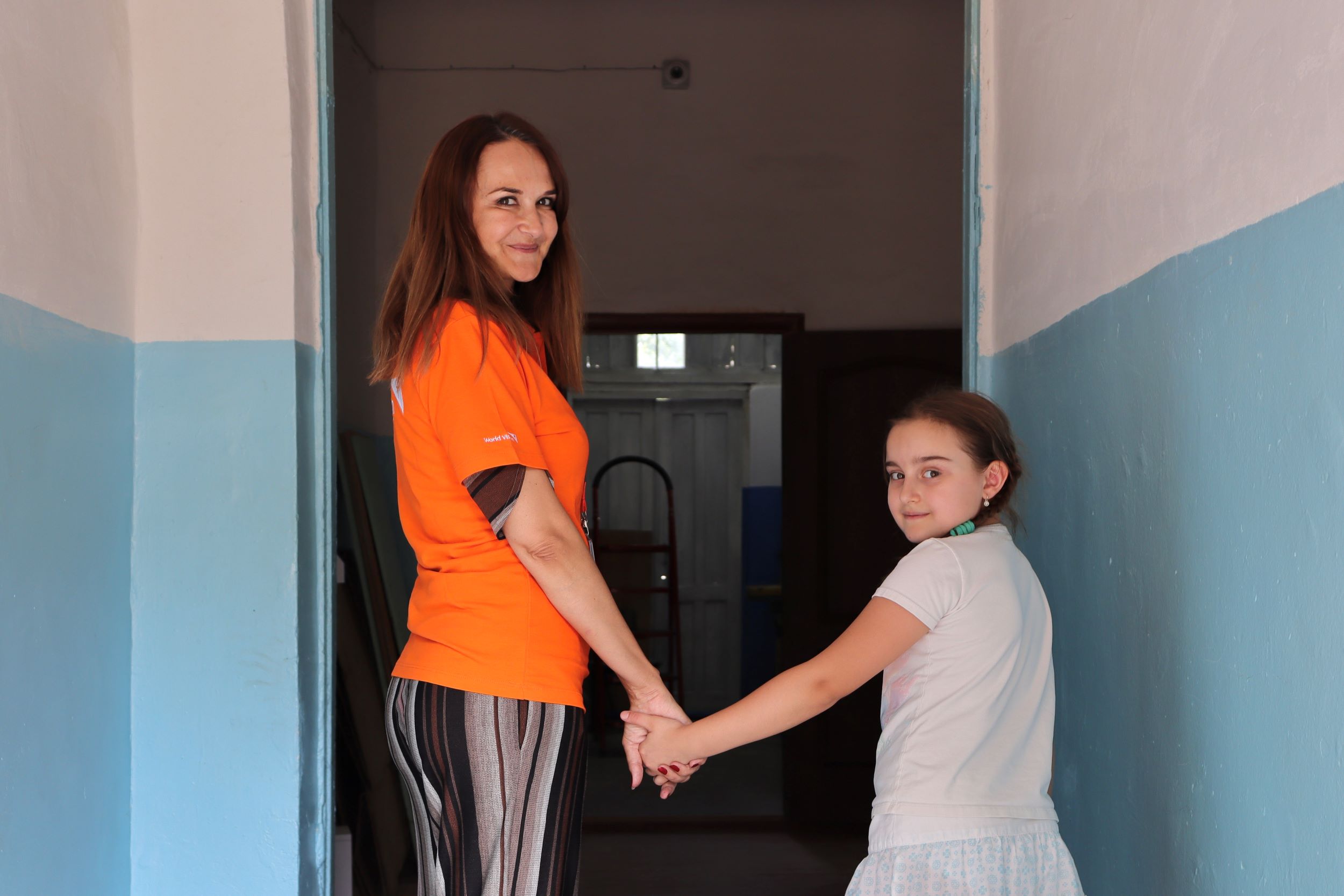
Conflict survivor becomes a World Vision champion
Adela shares how living through war has made her determined to help other girls
World Vision works in some of the hardest places to be a child. This includes countries and regions affected by war and conflict.
Each year, as International Day of Peace is marked on 21 September, we reflect on what it’s like for children living through war, displacement, and an uncertain future. This time, we share the story of Adela Softic, from Bosnia and Herzegovina.
At 14, Adela’s life changed overnight when war broke out in her home country. Now, 31 years later, Adela is in Moldova working as a project manager for World Vision’s Ukraine Crisis Response.
The Bosnian War robbed Adela of her dreams, her friends and ten years at home, but she didn’t give up on her dreams. And today she’s helping dozens of young girls with similar dreams.
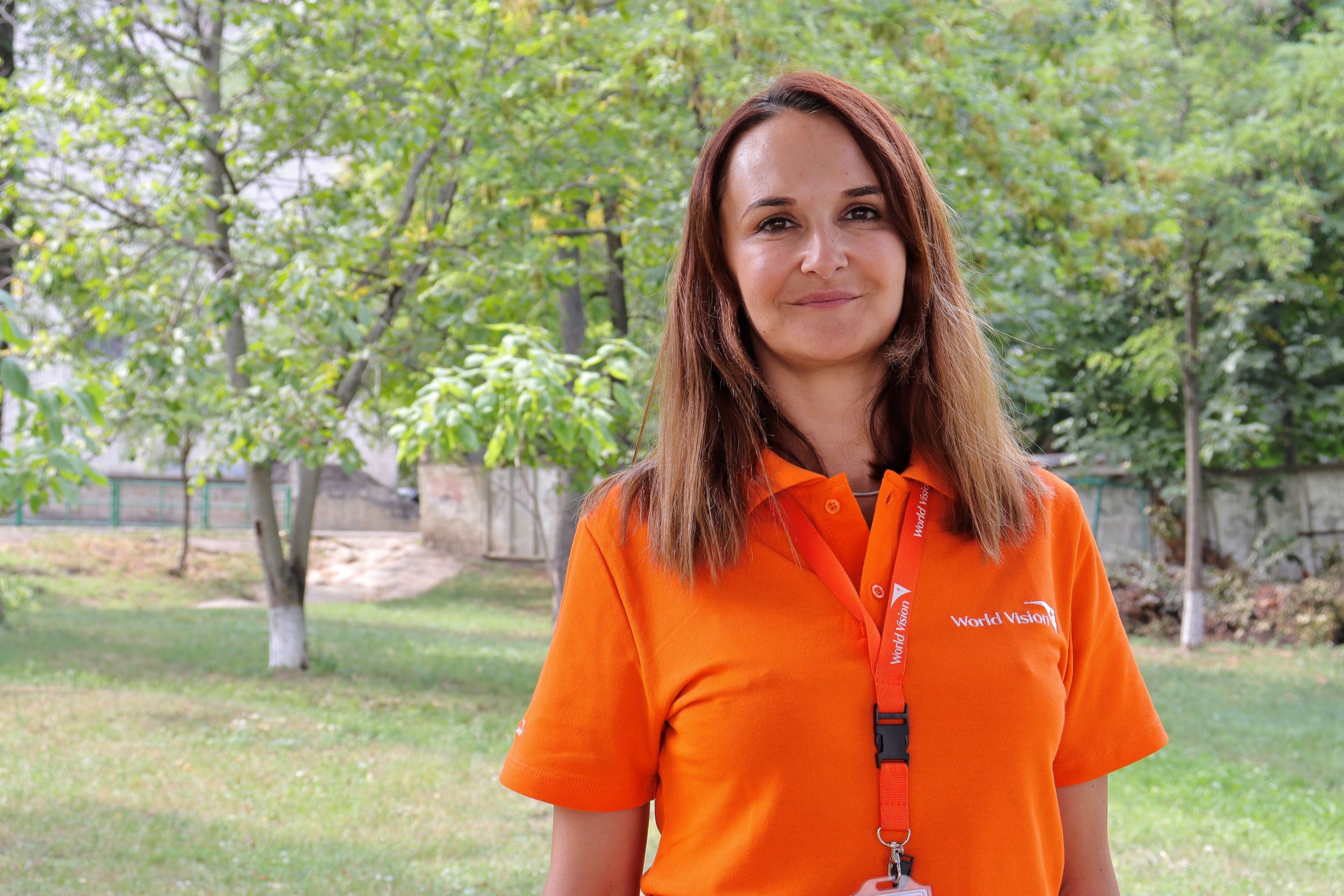
The day it all changed
Adela’s story begins on Friday 3 April 1992 – an ordinary school day for 14-year-old Adela.
She sat in her usual seat as the teacher announced a reading list for the year’s final exams and wrote down the test dates in her bright green notebook. There would be weeks of intense study before the exams in May.
The day passed like any other, but Adela didn’t know it would be the last time she would see her school friends.
“We were supposed to have a prom in May,” she recalls, with a gleam in her eyes. “I never got the chance to say goodbye to them.”
By Monday 6 April, Sarajevo, the capital of Bosnia and Herzegovina, had become a battle zone – the sound of gunfire and artillery bombardment echoing loudly in the streets, in people’s houses, schools, hospitals.
“Death suddenly became part of our daily lives”
In Sarajevo, after the war broke out there was a lack of running water and electricity for months. When the capital city had been blockaded, residents received only limited food supplies. Everything was rationed.
“Many children my age reached that level of maturity before their time,” recalls Adela. She and her friends would lug entire water containers from one end of the city to the other, walking for miles.
Once finished, they’d rush back for another, fetching water for elderly neighbours who couldn’t walk long distances.
People went missing every day, whether it was a neighbour, a friend, or a distant relative. “Each day, someone close to you is killed,” says Adela. “That’s when it becomes real. Death suddenly became part of our daily lives.”
Adela and her family left Sarajevo, having spent more than 11 months living in the city’s shelters. She couldn’t have known it would be 10 years before she would return.
“I took only two things,” she shares. “My dog and a diary of all my teenage memories of a peaceful Bosnia.”
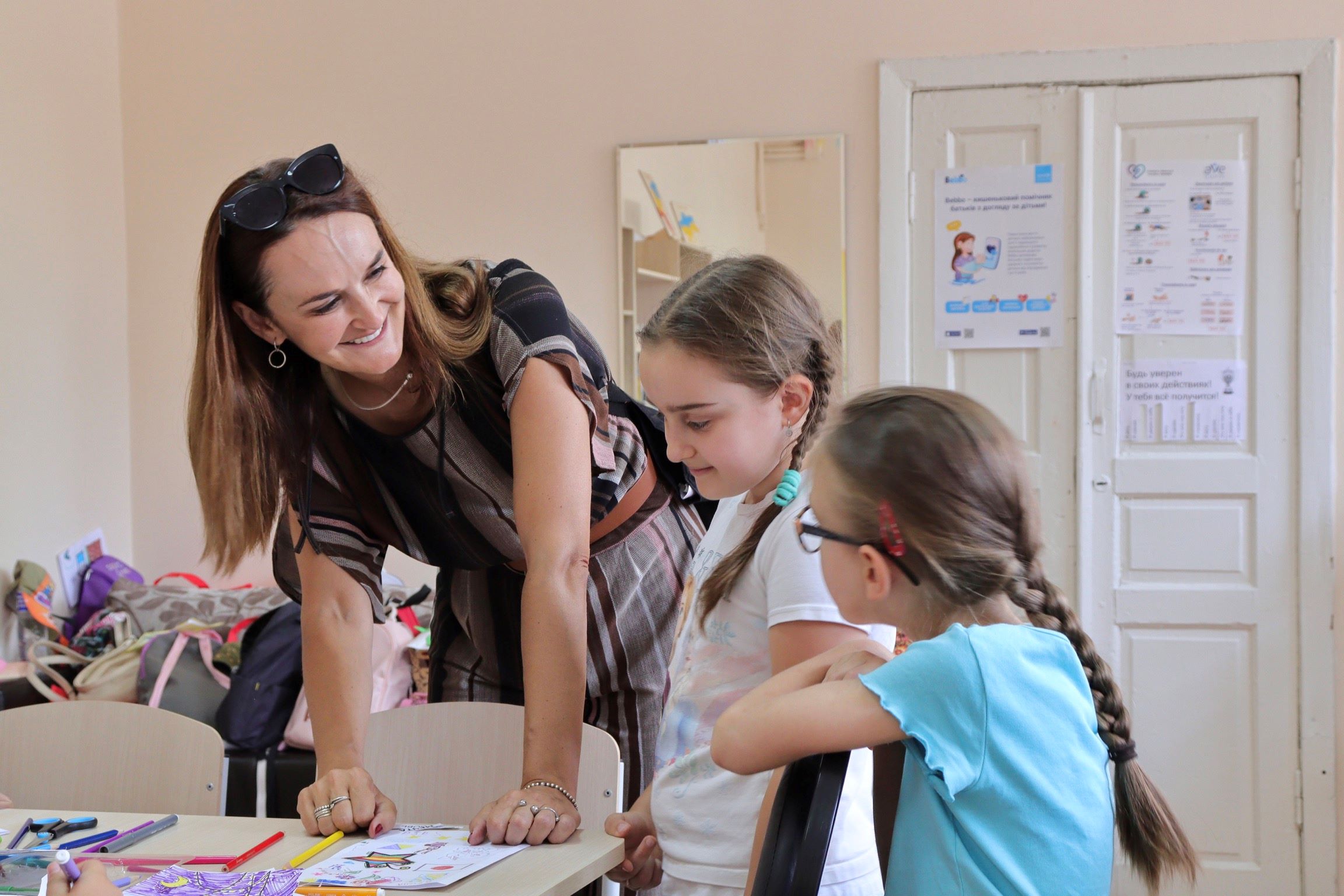
“Our shared fate”
Adela never took those final exams in Sarajevo. But when her family relocated to northern Serbia, she was enrolled in a local high school to carry on her education, along with 25 other Bosnian children.
The family started life from scratch, moving into a small apartment. Unable to get well-paid jobs, it was all Adela’s parents could afford. Over the next 10 years, they would move 12 times.
“I got used to packing my life in a box,” she says.
As Adela recalls that time, a vivid memory returns. During her first months in Serbia, dozens of Bosnian refugee children received tennis shoes and winter jackets as humanitarian aid.
“They were both comfortable and elegant, and I couldn’t wait to wear them to school and brag about my new look,” recalls Adela. When she arrived at school the next morning, she noticed that all the 25 refugee children in her class were wearing identical jackets and tennis shoes.
“We had the same look,” she continues. “When I wore them, it reminded me of our shared fate.”
A “safe place”
During the war, Adela volunteered as an amateur radio operator in Serbia. They used radio to communicate between the two countries because there was no other way to connect with Sarajevo.
“I transmitted those messages between Serbia and Bosnia,” explains Adela. People from Serbia tried to find their relatives in Bosnia, knowing only their names and surnames. A team of volunteers tried to locate those people and connect with their families.
“I started going to the radio amateur because I wanted to stay connected with my grandmother who remained in Sarajevo, but then it became a volunteering job with much more meaning to me,” Adela shares.
At 16, Adela learned Morse code to communicate telegraphic information using rhythm. Throughout that time, she was always connected to Sarajevo. “It was a safe place for me,” recalls Adela.
She became friends with other amateur radio operators from Bosnia through daily messages. Everything was done over the radio. “I met several of them after the war,” she says.
The return
Adela was 25 when she first returned to Sarajevo. By then, restaurants and cafés had replaced the bomb shelters that previously lined the streets and subways. Children played joyfully near the five-story buildings where artillery shells had once landed.
“I fell even more in love with Bosnia,” recalls Adela, genuinely smiling. “We had some kind of hope for the future, and I wanted to be a part of that future,” she adds.
Returning to Sarajevo, her life settled down quickly. After graduating from the Bosnian language and literature faculty, she started a family of her own.
Joining World Vision
Adela joined World Vision in 2007, marking the beginning of more than 15 years of her significant humanitarian work.
Her work has been focused on the migrant crisis, children without parental care, peace building, and integration of Roma communities in Bosnia and Herzegovina during the past few years. But today she is serving the Ukrainian refugees in Moldova.
“I wanted to help, but not only with a package of food or some winter jackets,” explains Adela. “I wanted to make them feel understood, seen, and heard of their suffering. I have been there as well.”
A year on, she can still see herself in every Ukrainian girl who crosses the border, as she once did in Serbia. “It hits me from nowhere,” she says. “You are fine, but then all those memories come back.”
More than three decades later, Adela is still a child of war, becoming small and fragile when those recollections return. “All the people we serve are real heroes to me,” says Adela.
She concludes, “When you know you can make even a small difference in that child’s life, you feel unstoppable.”
Child Safe Zones
Adela found a safe place during her time in Serbia, and it made such a difference. Now she is part of a team that do the same for Ukrainian children.
Child Safe Zones are places where children can play, continue with their education, and get counselling and other support. They help children process what has happened and find hope for the future.
Since the war in Ukraine began, World Vision has reached more than 640,000 children in and outside of the country, including those in Moldova. World Vision is also supporting children displaced by conflict in countries like Syria, Sudan, South Sudan, and the Democratic Republic of Congo.
By giving to World Vision, you can be a part of this amazing work, joining others and making a long-lasting difference to children’s futures.

